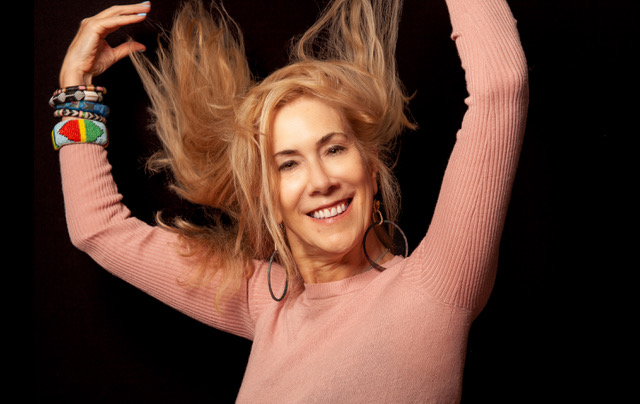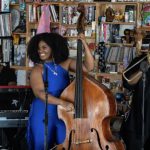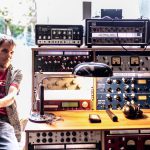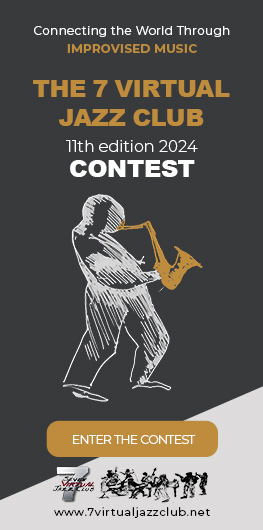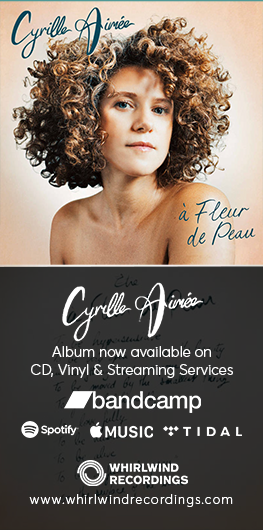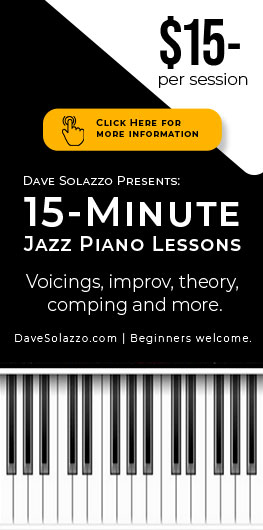The world of jazz (and music) journalism is a competitive struggle at times, particularly for women looking to break the mould and find a name for themselves in a historically male-dominated industry. Despite this, plenty of women have successfully navigated their writing and journalistic careers, embarking on different paths and timelines to get where they want to be.
Women in Jazz Media have been exploring the stories and experiences of several female music writers, who have been transforming perceptions in the music industry one word at a time. These interviews aim to uncover the wonders and challenges of being a writer, hopefully inspiring many young women to follow their own writing ambitions!
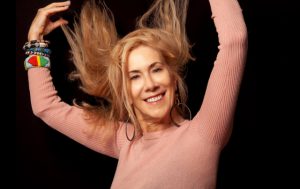
Jane Cornwell by Lukasz Izdebski.
Jane Cornwell writes for various major newspapers and online platforms in the UK and Australia. She is a Jazz and World Music Critic for the London Evening Standard, the Contributing Editor for Songlines Magazine and JazzWise and a frequent onstage interviewer at festivals including WOMAD and the EFG London Jazz Festival. In July 2022, she won the Jazz Media Award at the Parliamentary Jazz Media Awards, for all her work in jazz journalism.
How did you begin your writing journey?
As a kid growing up in the outer suburbs of Melbourne, I just loved to write. Short stories, poems. I won a Writer of the Week ribbon at primary school and got 100 per cent for English Expression in my final year at high school. But I tried and failed to get a journalism cadetship and did a post-graduate degree in anthropology instead. A fellow waitress at the Last Laugh theatre restaurant, and an editor at the Melbourne newspaper Herald Sun, got me to do a book review of Wade Davis’s The Serpent and the Rainbow, and then I started doing the odd bit of literary criticism and kept up the creative writing. When I moved to the UK in 1988, I flailed around a bit – I did a lot of unpaid writing for Australian freesheets Southern Cross and TNT, which you used to find at tube stations – before landing a job as a press officer at the Institute of Contemporary Arts. Over five years I dealt with a lot of editors and was writing for Australian newspapers about comedy (I’d come over to live with a UK comic) and doing the odd music interview. I interviewed Nick Cave for the Guardian and Bjork for Rolling Stone Australia (an ex-schoolmate was the editor), and heaps of stuff for the Pink Paper (the art editor was a friend) and slowly feathered my nest that way. When I left the ICA (was sort of pushed out, and I didn’t really do any work), I had this huge knowledge of leftfield music, performance and visual art that still stands me in good stead. I went freelance in 1995 and wrote a lot for Australia, mainly, though was a rock critic for the Independent newspaper for a bit.
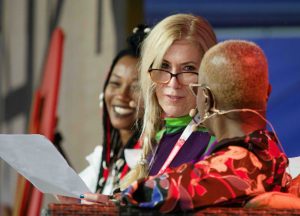
Photo by Dianne Brooks
In 1997 a friend’s boyfriend was working at Peter Gabriel’s Real-World Studios and got me in as a researcher. Marrying rock music and anthropology seemed to fit, and these so-called ‘world’ artists had way more interesting backstories than your average indie band. I’ve worked on and off for RW ever since, writing, and interviewing; I’ve hosted the Real World stage at WOMAD for some years now too. I’ve long been a feature writer and interviewer for Fair fax and (for my sins) News International in Australia. Not long after I started writing for Songlines magazine (I’m now a contributing editor) and eventually became a world music critic at the London Evening Standard.
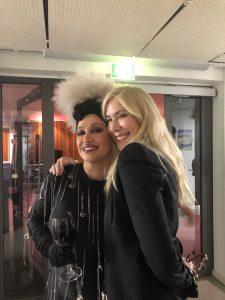
Jane Cornwell with Lady Blackbird
Through the Standard, though am not sure how, I met the irascible Jack Masserik, who while mainly a lover of post-bop and swing got my passion for spiritual jazz and would ask me to review the odd jazz gig. When Jack died in 2014, I wrote his obituary in the Standard – a one-pager – after which the arts editor asked me if I’d take over. I was then writing for Jazzwise magazine as well. If I didn’t have the technical know-how, I figured I knew when music had heart, and I could describe how it made me feel. In 2015 I published a music/travel memoir, The Whirl, with HarperCollins Aus, and in 2017/18, I enrolled in a Masters in Global Creative and Cultural Industries at SOAS and did a dissertation on the so-called young British jazz scene, and tried to push the London jazz community as much as I could in the Standard. Last year I received the All-Party Parliamentary Jazz Media Award, which was lovely, but it’s becoming harder and harder to get coverage for jazz but hey, I’m persevering.
Did you face any challenges?
Er, yes. Particularly being taken seriously as an older woman and non-jazz musician in a field which is very male, very purist and often ageist. Huge challenges remain in pitching articles to editors on newspapers who simply don’t reply, or commission a piece then hang onto it, so you’re not paid until it runs, or the fact the pay is so low for the effort you long for a patron or some sort of money spinner. Another challenge, I think, are musicians and some PRs assuming that you have a hotline to editors and just need to ask to get something in the paper; unless it’s Jazzwise or Songlines, it can be exhausting putting lots of work into a pitch – especially something you feel is a gift – then hearing nothing back. So many challenges: juggling a relationship when deadlines wait for no one, or getting back from a gig in the wee hours and having to write a review that will appear in the paper the next day.
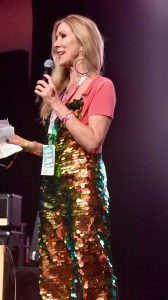 Did you have any support along the way and if so, is there anyone you would like to thank or highlight?
Did you have any support along the way and if so, is there anyone you would like to thank or highlight?
Loads of people; too many to mention. But in terms of jazz writing, notably the much-missed Jack Masserik, and Jazzwise MD Jon Newey for recognising my potential as a jazz writer and nurturing it. Ditto, the tireless Jazzwise editor Mike Flynn. And all the editors who take time to say, hey thanks, that was great copy.
Any words of wisdom or guidance for anyone considering writing?
Persevere, network. Believe your worth but do write for free early on, just to get the by-lines going and the paid work evolving. Find a passion and specialise; world music and jazz are mine, though I can’t live on what I earn from writing about them – I do arts and travel writing, press release writing and comparing too. Crossing platforms is essential; today writing is just one skill of many needed to make a career.
Photos provided by Jane Cornwell.
Last modified: March 30, 2023


